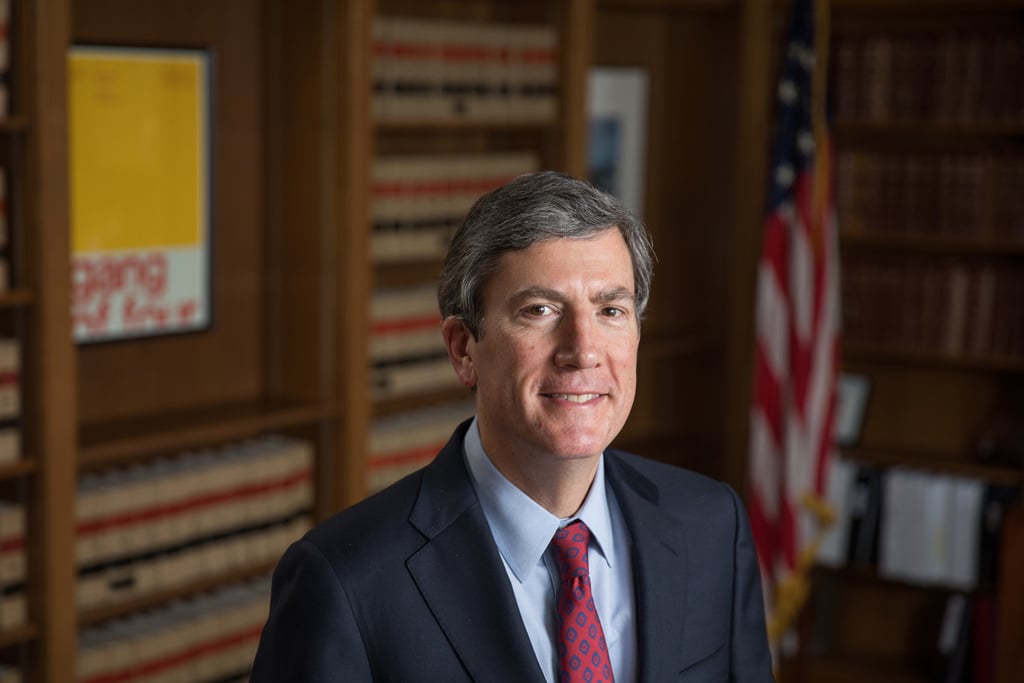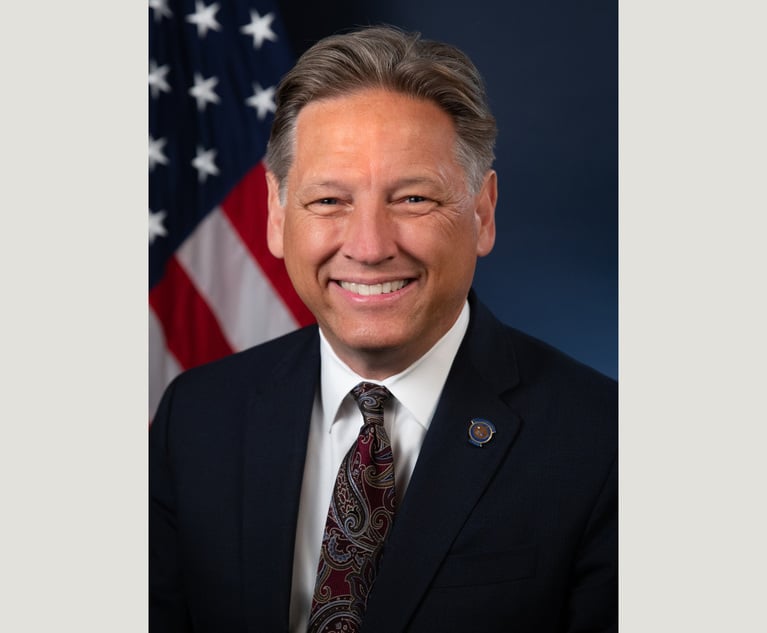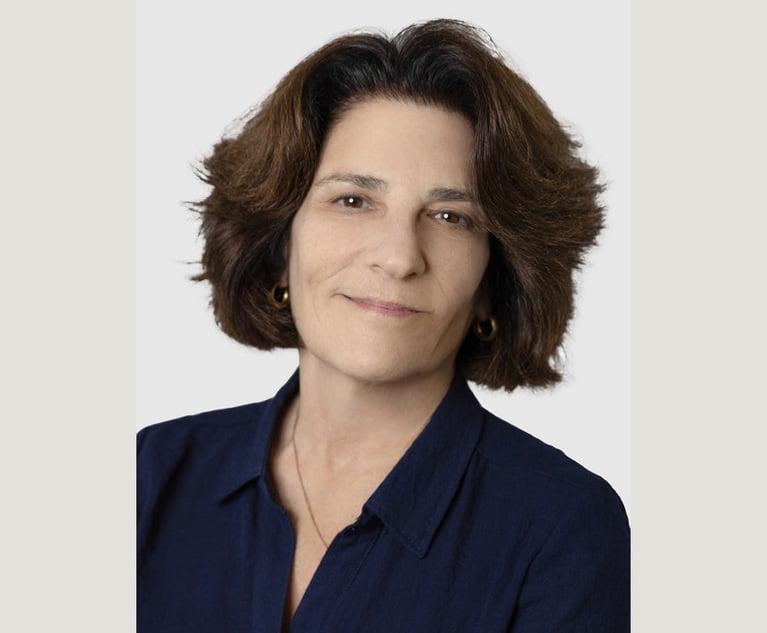Judge Mum on Whether He'll Certify Class in PwC Age Discrimination Case
But U.S. District Judge Jon Tigar said at a hearing Tuesday that if he denies class certification, he's likely to do so without prejudice.
February 28, 2018 at 03:51 PM
4 minute read

SAN FRANCISCO—At a hearing Tuesday afternoon, the federal judge overseeing a lawsuit claiming accounting firm PricewaterhouseCoopers LLP systematically weeded out older candidates from entry-level positions gave few clues about whether he will certify a class.
But U.S. District Judge Jon Tigar of the Northern District of California, who is considering the plaintiffs' motion to conditionally certify a class to pursue age discrimination claims against PwC, did indicate plaintiffs are likely to get another shot even if he denies class certification.
“If that happens, it would be without prejudice,” said Tigar, of the possibility of denying class cert. “I'm also very unlikely to decide for myself what a better group is.”
With that said, Tigar told plaintiffs counsel, Outten & Golden's Melissa Stewart, that he's concerned their class definition would sweep in older candidates not qualified for the PwC positions they applied for.
“Unqualified applicants are not entitled to relief and plaintiffs don't say otherwise,” Tigar said. “They say, 'Can we please deal with this later?'”
Later in the hearing, Tigar confronted PwC's lawyer, Emily Nicklin of Kirkland & Ellis, with data from one of the plaintiffs' experts who calculated younger candidates are 538 percent more likely to be hired than people over 40.
But Nicklin said that while the plaintiffs could show PwC had nationwide hiring practices and an active on-campus recruiting program to hire associates straight out of college, they couldn't show those policies were discriminatory.
“What is clear is that the evidence put before you, if fairly read, doesn't give rise to the inference that the company is discriminating against people based on age,” Nicklin said.
Tigar didn't indicate which way he is leaning in the case, which tests the bounds of federal age discrimination law, and discouraged the few members of the press and public gathered for the hearing from reading too much into his questions.
But the case, Rabin v. PricewaterhouseCoopers, is one of several pending in courts across the country that target alleged hiring discrimination under the Age Discrimination in Employment Act. Court filings from the plaintiffs lawyers estimate the class could be as large as 14,000. Outten & Golden's Stewart said Tuesday that 12,169 older candidates who attempted to apply for positions at PwC were passed over during the period covered by the lawsuit.
In their motion opposing class certification, PwC's lawyers insist the plaintiffs did not prove there was any decision, policy or plan that justified certifying the class. PwC's lawyers also argued that many of the actions, including college recruiting, are lawful, while others lack supporting evidence and some of the plaintiffs would not have passed the company's initial hiring screening process.
In a 2013 study of its workforce, PwC reported that two-thirds of its employees were in their 20s and early 30s, 75 percent of whom were hired directly out of college. It estimated in that report that by 2016, almost 80 percent of its workforce would be “millennials,” born between 1980 and 1995. The court documents cited data from the U.S. Bureau of Labor Statistics that show the median age of accountants and auditors in the U.S. is 46, and only 30 percent are millennials.
In a statement to The Recorder, Nicklin said “PwC is fortunate to be a sought-after employer. We receive about 300,000 applications each year and hire fewer than 5 percent of those who apply. Our hiring practices are merit-based. They have nothing to do with age and we will prove that in court.”
The statement continued: “Like many large employers, PwC recruits at the nation's colleges and universities, an approach that is widely recognized to be both efficient and effective. There are many ways to apply for a job at PwC, not just through the campus hiring process. We have applicants of all ages and experience levels. We pride ourselves on the quality of our hires and the diversity of our workforce.”
This content has been archived. It is available through our partners, LexisNexis® and Bloomberg Law.
To view this content, please continue to their sites.
Not a Lexis Subscriber?
Subscribe Now
Not a Bloomberg Law Subscriber?
Subscribe Now
NOT FOR REPRINT
© 2025 ALM Global, LLC, All Rights Reserved. Request academic re-use from www.copyright.com. All other uses, submit a request to [email protected]. For more information visit Asset & Logo Licensing.
You Might Like
View All
‘Facebook’s Descent Into Toxic Masculinity’ Prompts Stanford Professor to Drop Meta as Client
6 minute read
US to pay nearly $116M to settle lawsuits over rampant sexual abuse at California women's prison
5 minute readTrending Stories
Who Got The Work
J. Brugh Lower of Gibbons has entered an appearance for industrial equipment supplier Devco Corporation in a pending trademark infringement lawsuit. The suit, accusing the defendant of selling knock-off Graco products, was filed Dec. 18 in New Jersey District Court by Rivkin Radler on behalf of Graco Inc. and Graco Minnesota. The case, assigned to U.S. District Judge Zahid N. Quraishi, is 3:24-cv-11294, Graco Inc. et al v. Devco Corporation.
Who Got The Work
Rebecca Maller-Stein and Kent A. Yalowitz of Arnold & Porter Kaye Scholer have entered their appearances for Hanaco Venture Capital and its executives, Lior Prosor and David Frankel, in a pending securities lawsuit. The action, filed on Dec. 24 in New York Southern District Court by Zell, Aron & Co. on behalf of Goldeneye Advisors, accuses the defendants of negligently and fraudulently managing the plaintiff's $1 million investment. The case, assigned to U.S. District Judge Vernon S. Broderick, is 1:24-cv-09918, Goldeneye Advisors, LLC v. Hanaco Venture Capital, Ltd. et al.
Who Got The Work
Attorneys from A&O Shearman has stepped in as defense counsel for Toronto-Dominion Bank and other defendants in a pending securities class action. The suit, filed Dec. 11 in New York Southern District Court by Bleichmar Fonti & Auld, accuses the defendants of concealing the bank's 'pervasive' deficiencies in regards to its compliance with the Bank Secrecy Act and the quality of its anti-money laundering controls. The case, assigned to U.S. District Judge Arun Subramanian, is 1:24-cv-09445, Gonzalez v. The Toronto-Dominion Bank et al.
Who Got The Work
Crown Castle International, a Pennsylvania company providing shared communications infrastructure, has turned to Luke D. Wolf of Gordon Rees Scully Mansukhani to fend off a pending breach-of-contract lawsuit. The court action, filed Nov. 25 in Michigan Eastern District Court by Hooper Hathaway PC on behalf of The Town Residences LLC, accuses Crown Castle of failing to transfer approximately $30,000 in utility payments from T-Mobile in breach of a roof-top lease and assignment agreement. The case, assigned to U.S. District Judge Susan K. Declercq, is 2:24-cv-13131, The Town Residences LLC v. T-Mobile US, Inc. et al.
Who Got The Work
Wilfred P. Coronato and Daniel M. Schwartz of McCarter & English have stepped in as defense counsel to Electrolux Home Products Inc. in a pending product liability lawsuit. The court action, filed Nov. 26 in New York Eastern District Court by Poulos Lopiccolo PC and Nagel Rice LLP on behalf of David Stern, alleges that the defendant's refrigerators’ drawers and shelving repeatedly break and fall apart within months after purchase. The case, assigned to U.S. District Judge Joan M. Azrack, is 2:24-cv-08204, Stern v. Electrolux Home Products, Inc.
Featured Firms
Law Offices of Gary Martin Hays & Associates, P.C.
(470) 294-1674
Law Offices of Mark E. Salomone
(857) 444-6468
Smith & Hassler
(713) 739-1250








